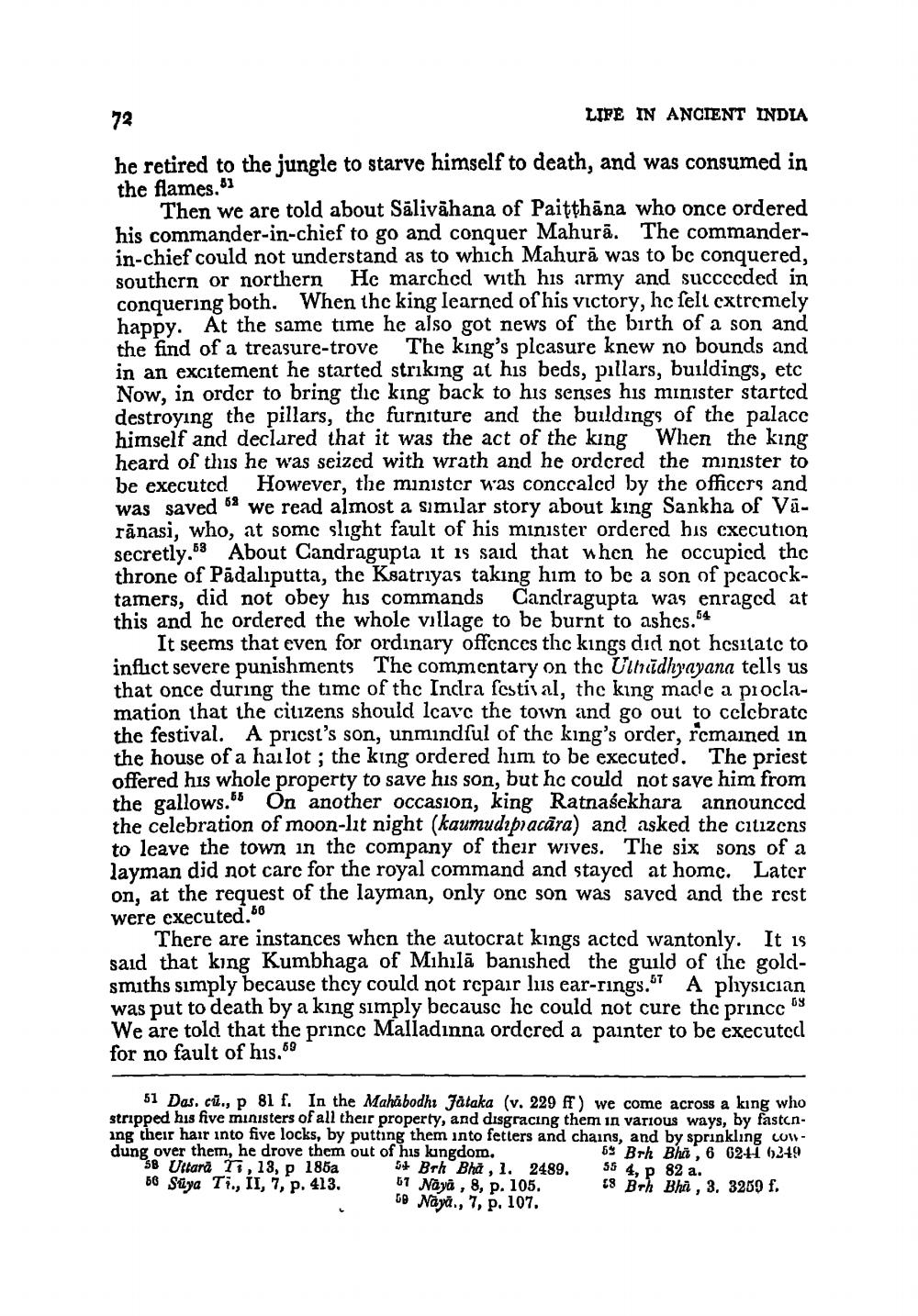________________
72
he retired to the jungle to starve himself to death, and was consumed in the flames.$1
LIFE IN ANCIENT INDIA
Then we are told about Sälivahana of Paiṭṭhāna who once ordered his commander-in-chief to go and conquer Mahura. The commanderin-chief could not understand as to which Mahura was to be conquered, southern or northern He marched with his army and succeeded in conquering both. When the king learned of his victory, he felt extremely happy. At the same time he also got news of the birth of a son and the find of a treasure-trove The king's pleasure knew no bounds and in an excitement he started striking at his beds, pillars, buildings, etc Now, in order to bring the king back to his senses his minister started destroying the pillars, the furniture and the buildings of the palace himself and declared that it was the act of the king When the king heard of this he was seized with wrath and he ordered the minister to be executed However, the minister was concealed by the officers and was saved 62 we read almost a similar story about king Sankha of Vāranasi, who, at some slight fault of his minister ordered his execution secretly.59 About Candragupta it is said that when he occupied the throne of Padalıputta, the Ksatriyas taking him to be a son of peacocktamers, did not obey his commands Candragupta was enraged at this and he ordered the whole village to be burnt to ashes.54
It seems that even for ordinary offences the kings did not hesitate to inflict severe punishments The commentary on the Uthadhyayana tells us that once during the time of the Indra festival, the king made a proclamation that the citizens should leave the town and go out to celebrate the festival. A pricst's son, unmindful of the king's order, remained in the house of a hailot; the king ordered him to be executed. The priest offered his whole property to save his son, but he could not save him from the gallows.55 On another occasion, king Ratnasekhara announced the celebration of moon-lit night (kaumudipiacara) and asked the citizens to leave the town in the company of their wives. The six sons of a layman did not care for the royal command and stayed at home. Later on, at the request of the layman, only one son was saved and the rest were executed.50
57
There are instances when the autocrat kings acted wantonly. It is said that king Kumbhaga of Mihilă banished the guild of the goldsmiths simply because they could not repair lius ear-rings." A physician was put to death by a king simply because he could not cure the prince We are told that the prince Malladınna ordered a painter to be executed for no fault of his.59
58 Uttara T, 13, p 185a 56 Saya Ti., II, 7, p. 413.
бу
51 Das. cũ., p 81 f. In the Mahabodhi Jataka (v. 229 ff) we come across a king who stripped his five ministers of all their property, and disgracing them in various ways, by fastening their hair into five locks, by putting them into fetters and chains, and by sprinkling cowdung over them, he drove them out of his kingdom. 5 Brh Bha, 6 6241 6249 55 4, p 82 a.
5 Brh Bha, 1. 2489. 57 Naya, 8, p. 105. 59 Naya., 7, p. 107.
18 Brh Bha, 3. 3259 f.




